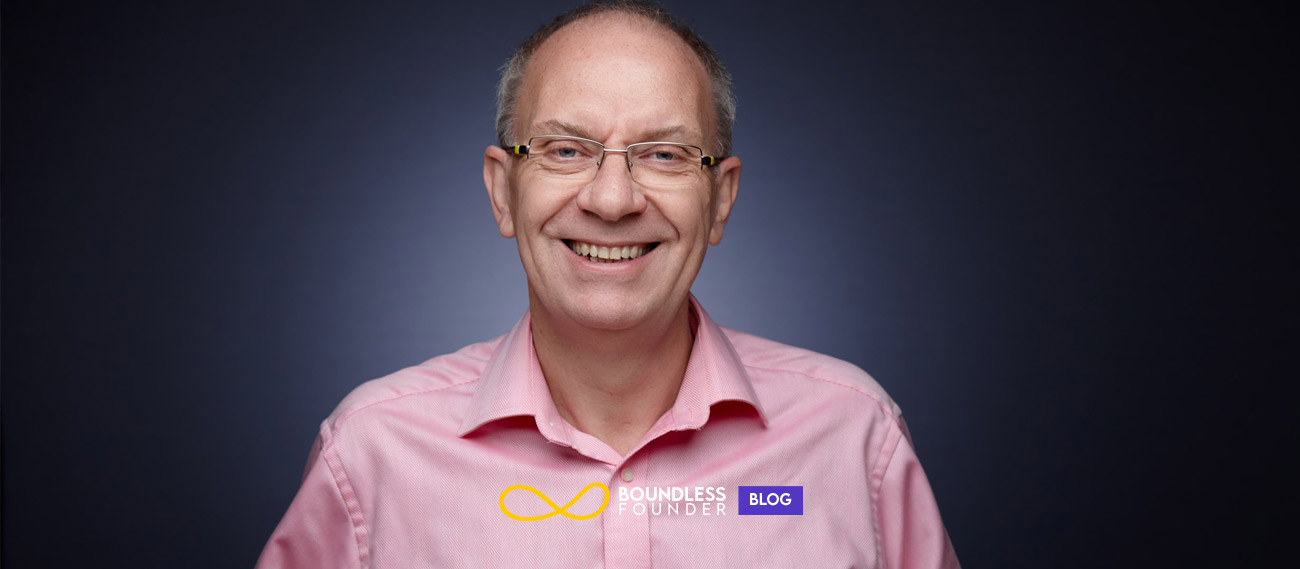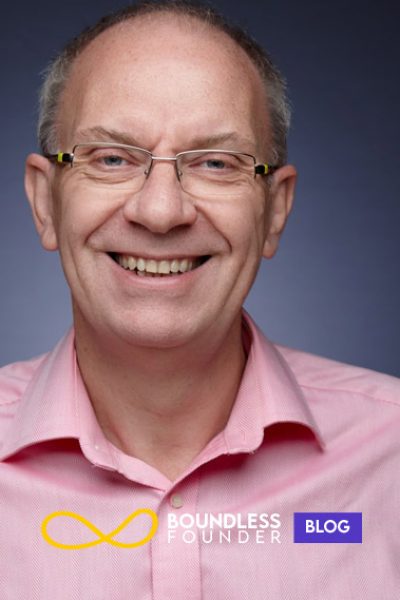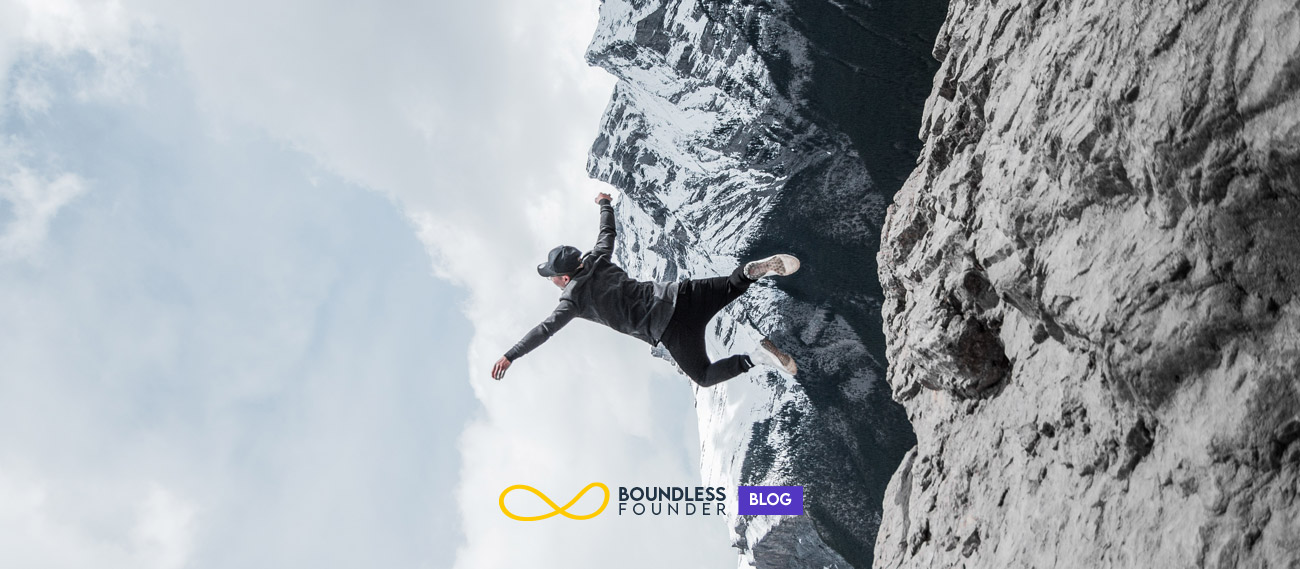Recently, I had the pleasure of sitting down with Russell from the Resilience Unraveled podcast to discuss the mental and emotional journey of entrepreneurship. What started as a conversation about business quickly evolved into a deep dive on resilience, the thoughts-emotions loop, and why your startup’s success depends more on your internal state than external circumstances.
Russell’s thoughtful questions pushed me to share stories I rarely tell—including the $65,000 AWS bill that nearly ended my startup and taught me the most valuable lesson of my entrepreneurial journey.
Here’s our conversation, edited for clarity while maintaining the authentic back-and-forth that made this interview special.
On Being an Egyptian Engineer in America
Russell: How does being Egyptian give you a different way of seeing the world or thinking about life?
Mohamed: You’re actually the first to ask me this question. Coming from Egypt taught me three crucial lessons about America and entrepreneurship.
First, humans are the same everywhere—same dreams, same concerns. Some countries just have the luxury of thinking about higher-level problems.
Second, despite America’s reputation for individualism, I discovered this country was built by teams. You have to blend into large organizations to build something great.
Third, the entrepreneurial spirit here is unmatched. The combination of equal opportunities and second chances creates an environment where a young engineer with just a bachelor’s degree can evolve into a businessman. Not many systems offer that transformation.
The Real Definition of Entrepreneurial Success
Russell: What do you see as the root of entrepreneurialism? Is it greed, hunger, or something else?
Mohamed: It’s deeper than money or status. Everyone wants to leave an impact that extends beyond their existence. They want legacy.
But here’s what differentiates Silicon Valley from other places: failure is a badge of honor. If you’ve built a startup that failed, you’re 66% more likely to succeed the second time. As they say, failure is the best teacher—success is a lousy teacher.
The media highlights extremes—massive successes and spectacular failures. But on the ground, it’s different. Success isn’t about winning once. Business is an infinite game. The goal isn’t to win; it’s to keep playing, to keep upgrading your position.
Engineering Resilience: A Different Perspective
Russell: Tell me about your approach to resilience, coming from an engineering background.
Mohamed: As an engineer, I decided to examine resilience through an engineering lens, and it transformed how I think about mindset.
Robustness in engineering means a bridge can withstand pressure without deforming. Applied to mindset, it means keeping your mental state stable despite external pressures.
Resilience means that even if something deforms under pressure, it returns to its original shape once the pressure releases—like a rubber ball bouncing back.
Now, map this to entrepreneurship. Every rejection, every setback impacts your mindset. The question is: Do you have the robustness to minimize that impact? And when you do get knocked off balance, do you have the resilience to bounce back?
The $65,000 Wake-Up Call
Russell: Can you share a specific example of how this played out in your journey?
Mohamed: Four months into building our product, one hour before a major conference, I received an email from AWS: “You owe us $65,000.”
We had $75,000 in the bank.
No customers. No revenue. And a bill that would essentially end our company.
That thoughts-emotions loop I mentioned? It paralyzed me for four weeks. Four weeks before I could think clearly enough to negotiate with AWS and find a solution.
Fast forward four years. We’re about to be acquired. Due diligence complete, team interviewed, everything ready. Two hours before signing, they back out because another company is acquiring them.
This situation was objectively worse—we were bigger, had more to lose, and were running out of money. But this time? The thoughts-emotions loop lasted maybe one or two hours. I took that unsigned LOI and started shopping it around. Within a week, I was meeting with four CEOs interested in acquiring us.
Russell: What changed between those two events?
Mohamed: Experience, yes, but more importantly—I’d learned to separate external events from internal narratives. In the first scenario, my co-founder and I created drama around the situation. In the second, I didn’t even tell my co-founder until I had solutions in motion.
The difference between internal and external pressure determines whether a setback becomes an opportunity or a catastrophe.
The Three Roles Every Entrepreneur Needs
Russell: You mentioned different types of support. Can you elaborate?
Mohamed: Entrepreneurs need three distinct roles in their journey, and they often confuse them:
- The Advisor: Someone ahead in business who shows you around corners. “If a customer says this, here’s what it really means.”
- The Mentor: Someone who challenges your mindset. My mentor once asked: “Are you helping your employees by giving them jobs, or are they helping you by executing your vision?” That question changed how I viewed leadership.
- The Entrepreneurial Friend: Not just any friend—someone who’s been through the journey and understands the unique pressures without judgment.
Why Rest Is Part of the Strategy
Russell: What happened after you sold your company?
Mohamed: I wanted to immediately start another company. My mentor said, “Wait at least a year, preferably two.”
I thought he was crazy. But in those two years working with the acquiring company, I learned more than in the previous four years of grinding. Why? The dust had settled. I could finally reflect on why that VC rejected us, how certain situations unfolded, what patterns emerged.
That reflection period is what led me to write “The Inside-Out Entrepreneur.” I realized I needed to document everything I’d learned for other founders.
The Inside-Out Approach to Entrepreneurship
Russell: Tell us about your book and its intriguing title.
Mohamed: Think of entrepreneurship like mountain climbing. Before attempting Everest, mountaineers condition themselves physically, mentally, and emotionally. Yet entrepreneurs often rush in without any conditioning.
The book addresses critical questions: How do you set yourself up for success? How do you build mental robustness? How do you prepare your family for the journey? How do you separate your identity from your startup’s identity?
That last point is crucial. Many entrepreneurs confuse their identity with their startup. If the startup fails, they think they’ve failed as humans. But your startup is just a chapter in your story, not the whole book.
Financial and Family Conditioning
Russell: Any specific examples of this preparation?
Mohamed: My wife initially opposed my startup plans 100%. So we made a deal: If I saved enough to cover two years of expenses, she’d support the decision.
That’s financial conditioning. But it’s also relationship conditioning—involving your family in the decision, setting clear boundaries, and creating safety nets.
The entrepreneur is the most vulnerable element in the startup ecosystem. VCs invest in portfolios knowing most will fail. Founders invest everything in one idea. That’s why strategic self-investment isn’t optional—it’s essential.
The Marathon Mindset
Mohamed: Everything around you screams “sprint!” But entrepreneurship is a marathon. You need to know not just how fast to run, but which direction to run in.
The book, “The Inside-Out Entrepreneur,” is the first in the Boundless Founder series. This one handles psychology and mental conditioning. Future books will cover timeless strategies for critical decision-making and building sustainable success.
Key Takeaways from Our Conversation
Reflecting on this interview with Russell, three themes stand out:
- Resilience is learnable: My journey from four-week paralysis to two-hour recovery proves that mental resilience is a skill you can develop.
- Your internal state determines your external results: The same $65,000 problem can be either catastrophic or manageable, depending on your mental framework.
- Success requires conditioning: Just as mountaineers prepare for Everest, entrepreneurs must condition themselves mentally, emotionally, and financially for the journey ahead.
Join the Boundless Founder Community
If you’re an entrepreneur—or thinking of becoming one—I’d love to hear your story. Whether you’re battling your own thoughts-emotions loop or preparing for your entrepreneurial journey, you don’t have to do it alone.
Download the free bonus chapter and companion worksheets from The Inside-Out Entrepreneur to start building your mental resilience framework today.
Join our community at boundlessfounder.co/join where entrepreneurs share their journeys, support each other through challenges, and build the mental strength needed for sustainable success.
Remember: Your startup is just one chapter in your story. Make sure you’re writing a book worth reading.
This interview originally appeared on the Resilience Unraveled podcast with Russell. Listen to the full episode here for additional insights and discussion.











Responses